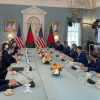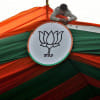Turkish envoy called home for consultation
The Turkish envoy to Dhaka has been called home by the Turkish government for consultations and in one sense, this is normal diplomatic practice. However, we feel that putting into context the manner in which Turkish President Tayyip Erdogan has reacted to Nizami's execution indicates that there is a gap in understanding amongst Turkish policymakers about our liberation war and the war crimes trials in Bangladesh. Indeed, the phrasing of Nizami's character that he had committed "no earthly sins" could not be further from the truth as far as his activities during our liberation war is concerned. Indeed, the Turks have been since 2012 been mistakenly likening Nizami to an Islamic scholar. We would like to point out that Bangladesh has a rich Islamic culture and we are very proud of it.
However we are forced to say that Turkey's understanding of our war of liberation is flawed. And Mr. Erdogan's recent statement and his predecessor Mr. Abdullah Gul's request to the Bangladeshi government in 2012 urging it not to pursue the trial of war criminals has put a strain on bilateral relations. As a friendly nation Turkey is expected to understand the fundamental spirit of our independence struggle and show due respect to it.
But we are sorry to see Turkey taking sides with the convicted war criminals which essentially is a crime against humanity and these people have been convicted through the highest courts of the law and there should be universal condemnation of such actions and such people. It is unfortunate to see that the Turkish government has been lodging protest since 2012 to stop the trials, and it is now time for our government make efforts to clarify to their Turkish counterpart the historical facts of what these war criminals did in 1971 to avoid any further diplomatic rifts.

 For all latest news, follow The Daily Star's Google News channel.
For all latest news, follow The Daily Star's Google News channel. 








Comments